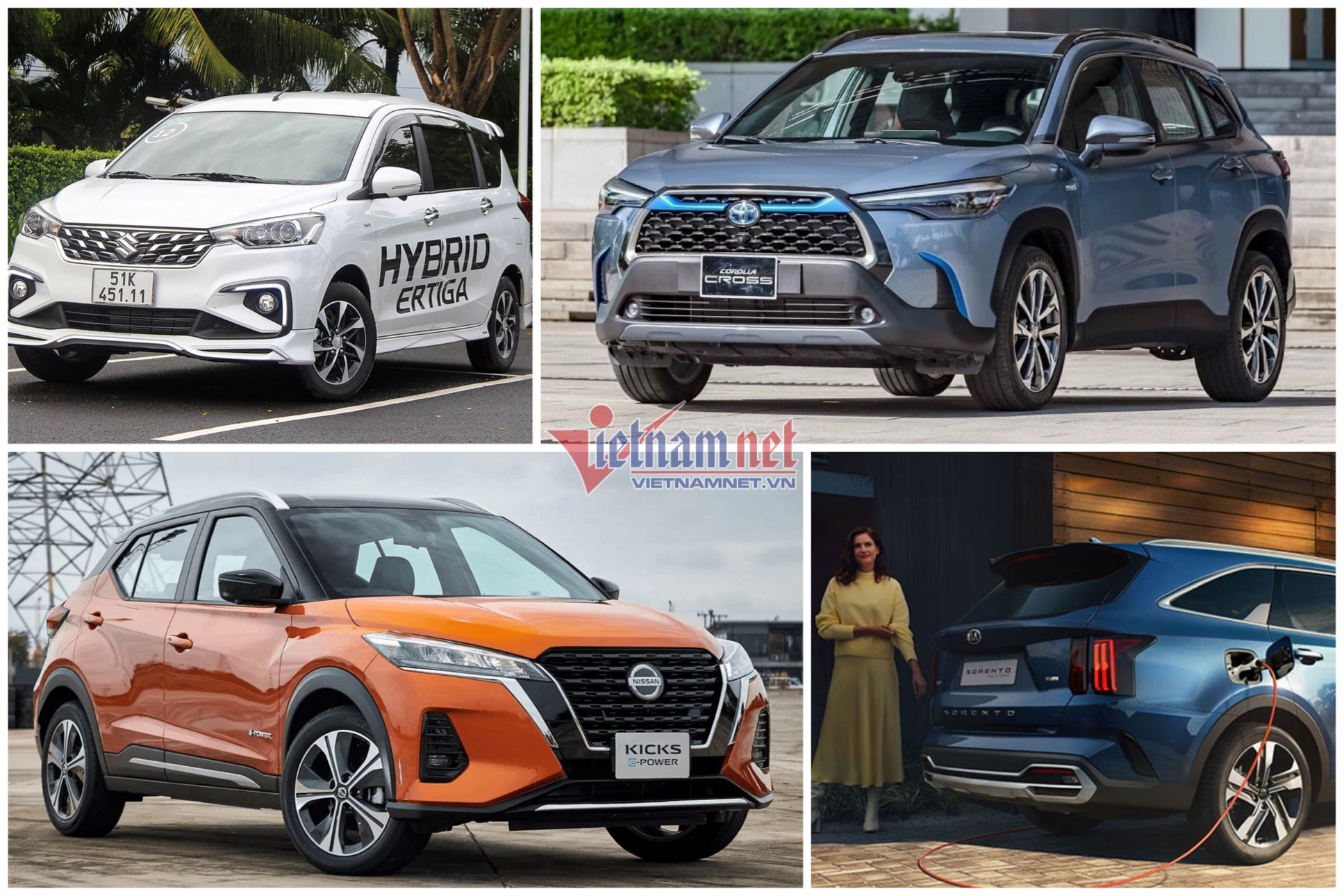
The first hybrid cars were imported in 2009 in modest quantities, mostly luxury models such as Lexus RX400h, LS600hL and Mercedes-Benz S400 Hybrid, and then models of Audi, Volvo and Land Rover.
In mid-2020, Toyota introduced its popular hybrid model – Corolla Cross HV. Later, Toyota Vietnam marketed hybrid editions of Camry and Corolla Altis.
Other manufacturers have introduced a series of hybrid models so far this year, including MPV Suzuki Ertiga Hybrid and B-class SUV Nissan Kicks with e-Power engine. The local market may also receive the PHEV (plug-in hybrid electric vehicle) hybrid edition of Kia Sorento.
Most recently, at the inauguration ceremony of its second factory in Ninh Binh, Hyundai Thanh Cong joint venture revealed a plan on assembling new car models, including the hybrid version of the popular SUV Hyundai Santa Fe.
The appearance of 10 hybrid models and purely electric vehicle models offer more green choices for consumers.
According to VAMA, the number of hybrids sold in the last two years has increased rapidly. In 2020, its member companies sold 546 hybrids, while the figure rose to 2,285 in 2021 and 1,954 in the first eight months of 2022.
Hybrids: stepping stone on path towards EV
The ‘xe dien’ (electric vehicle – EV) and ‘xe xanh’ (green vehicle) vehicles are mentioned regularly. Customer interest in environmentally friendly vehicles is clear, especially amid an unstable fuel supply.
The Vietnam Automobile Manufacturer Association (VAMA) cited a report from Frost & Sullivan as saying that EVs, especially hybrids, will be the key products of car manufacturers from now to 2030.
In 2021, when the market declined because of the Covid-19 pandemic, the number of EVs sold accounted for 11.7 percent of total cars sold. It is expected that the figure will be 26.7 percent by 2025, of which HEV (Hybrid Electric Vehicles) would account for 16.2 percent.
Analysts predict that by 2030, new EVs will account for 59 percent, much higher than the percentage of vehicles using internal combustion engines, of which HEV alone would account for 27.1 percent.
Hybrids are less economically efficient than EVs and still emit CO2 to the environment, but in developing countries like Vietnam, where there are still obstacles in policies and technical infrastructure, hybrids are a reasonable choice for the next 5-10 years.
Hoang Hiep